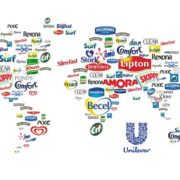The Poynter Institute has published a piece on how to know if you have fake Twitter followers. I have 10-thousand or so followers — a modest number given there are many people with more than a million. I have no idea how many of mine are real or fake and I have no plans to find out. So I ask you:
1) Are most people willing to spend the time to investigate fake followers?
2) Will anyone willingly decrease their perceived clout by lowering their number of followers?
The answer to both questions is no.
I believe there has always been folly in perceiving a large social media following as power. This new (and always rumoured) discovery only serves to reinforce my belief. Not feeding their legions of fans with cute quips or political opinions has never hurt Jennifer Lawrence, George Clooney nor Bill Murray.
So why does our society continues to buy into it all? We’re basically lazy. We think we can judge success or failure based on these numbers. I’ve worked for two television networks in Canada and both firmly believe being active on social media is important. I have yet to see it move the needle where ratings are concerned, and it’s done nothing to prevent the steady decline of TV viewers. And while research indicates most people who get news from Twitter choose to get it from reputable news sources — let me know when we can monetize that so more of us can provide the journalism to back up the tweets. But if you’re the person who’d like to clean up your account, good for you! Check out this article.






